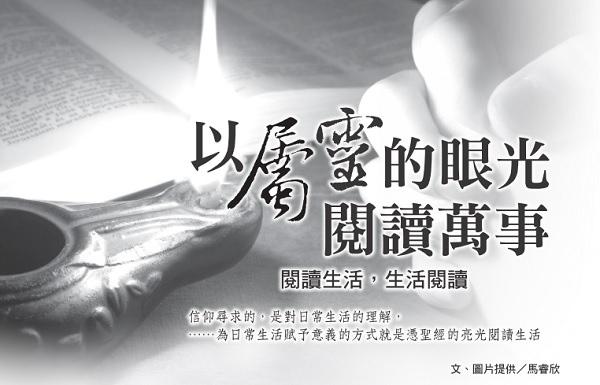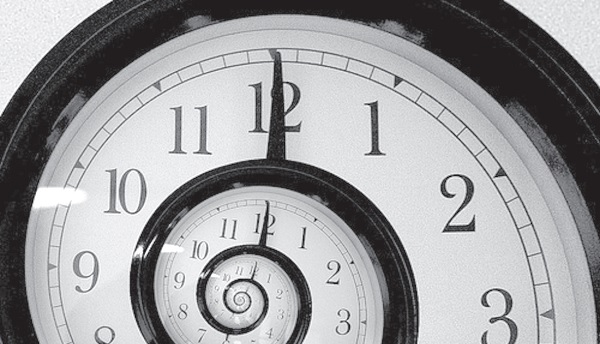Read all things with spiritual eyes
Reading life, life reading
Picture provided/Ma Ruixin

suitcase
Everyone owns a suitcase because it is very practical and almost a must-have. However, have you ever read a suitcase carefully? In addition to paying attention to its price and material, have you ever thought about what the suitcase means to you? What is the meaning and value of its existence?
"The suitcase is a very frank thing. It often requires us to re-examine our physical needs and become a minimalist. The suitcase is a house that can be taken away. It forces us to make choices about the material things we own. It is called We re-choose what is essentially necessary in life and what is actually dispensable.”

▲The suitcase allows us to experience: "As long as desire can be controlled within a certain range, happiness is possible."
The suitcase allows us to experience: "As long as desire can be controlled within a certain range, happiness is possible." This is a fragment from a book written by a French writer. The book is translated into English as "How are Things?", he called himself "Philosopher's Experiment", selected fifty-one of the most common things, and seriously re-understood them. When he decided to look at some trivial things in life, such as suitcases, paper clips, beds, umbrellas, etc., with different eyes, what he saw was very different from what ordinary people saw.
For several nights, a small poster artist in a bookstore in Taiwan had trouble sleeping. He kept thinking about whether the colors on the poster for this bookstore event should be changed to other colors. Seeing him like this, his colleagues couldn't help but said to him: "Actually, this is just an event poster, not a competition. It would be great if the company knows that you are trying your best."
As a result, the little artist said: "Yes, I may be able to account for the company and this event, but this is not what I thought of. Opposite one of the walls where I often put up posters is an elementary school. Every time I go to see the posters, Sometimes, I often find that when children come out of school, they look up and see that wall at first glance. I think that the aesthetic impact of the posters on that wall on those primary school students may be greater than the one the school occasionally takes them to. The famous paintings I went to see in the art museum are deeper. Every time I think about this, I feel a heavy responsibility. Although I am not a famous painter, I hope to do my best to let those children see the best beauty of color combinations. in."
This is a little artist who is thoughtful about education and culture. This is also a little artist who is thoughtful about other people’s lives. His scheming comes from his vision. What other young artists see is a poster, a wall, and at most the boss's face, but what he sees is a group of primary school students and their lifelong aesthetic qualities. When he is willing to look at an insignificant poster with different eyes, what he sees is very different from what other people see.
Every time I read "Look!" in the Bible, I feel thrilling.
"Behold, I stand at the door and knock. If anyone hears my voice and opens the door, I will come in to him, and we will eat together with him, and he with me." (Revelation 3:20)
"Behold, I am going to do a new thing. Now I am going to discover it. Don't you know it? I will make a way in the wilderness and rivers in the desert." (Isaiah 43:19)
"Be careful. Behold, I have told you everything beforehand." (Mark 13:23)
Depending on the translation, there are about 240 to 245 places in the Bible telling us to "look." The meaning of "look" does not mean to look for it, but it already exists, but you have to look, look carefully, and pay attention. This is still related to vision.
We encourage Christians to read spiritual books. I have always believed that spiritual reading is like paddling in a rafting boat. Having correct and graceful paddling movements is a kind of enjoyment, a challenge, and a kind of Continuous practice. But paddling is not the purpose of rafting. Paddling allows rafters to walk on the lake and enjoy the scenery of the lake and mountains. At the same time, it can take the rafters to the other shore.
Life is our lake, and the other shore is God’s special call and destiny for each of us. We learn to paddle hard, desperately search for the other shore, or stare at the other shore, but we don’t care about the lake we are walking on or the scenery on the lakeshore. This is a lack. If we only read books but do not value life, we are called nerds. If we read spiritual books but do not value life, we are called spiritual geeks.

▲Spiritual reading is like the paddling movement when rafting. Having correct and graceful paddling movements is a kind of enjoyment, a challenge, and a kind of continuous practice for rafting people.
Regarding reading life, I would like to discuss three aspects:
1. What is a reading life?
2. What are the ways to read life?
3. Where will our reading life lead us?
What is a reading life?
Reading life is a kind of careful understanding and understanding of all things on earth, the universe, life, and various experiences of reality through observation, listening, participation, and imagination. Calvin proposed that Christians should see (read) the world through the Bible (eyes of faith).
Fan Haosha, research professor of systematic theology at Trinity Evangelical Divinity School, mentioned in his book "Everyday Theology": "What faith seeks is the understanding of daily life, the ability to grasp what is happening in daily life (the reasons behind it), and the attempt to Understanding the circumstances you and I find ourselves in, and the way we give meaning to our daily lives is by reading and living in the light of the Bible.”
Daily life, that is, every day, is a place full of ordinary and repetitive things. The most ordinary and simple things are actually the most difficult to explain. When Augustine talked about people's normal experience of time, he said: "What is time? If no one asks me, I have no doubts, but when it comes to explaining, I have no doubts. His face was blank.
Christians, myself included, sometimes have a compulsive attitude towards daily life: We wish we could finish work so we could go to church, we wish our kids could go to bed so they could read spiritual books, and of course, more They wish their children would grow up quickly and have more time to serve. Many brothers also wish they could retire quickly and study theology.
Pastor, professor, and well-known author Barbara Brown Taylor describes this situation well in her book: “We want a strong sense of God’s presence, and we want some reliable way to seek and stay there. Being present is not just the hour of Sunday worship, or Wednesday afternoon, but more. But the only way we know is to spend more time in church, and we are not sure we can do it as long as we leave church. What to do. At least knowing some things in church can help us get closer to God, but as soon as we step into the church parking lot, that sense of intimacy starts to slip away.”
For many Christians, the only meaning their daily lives have to them is the mission of the gospel. Yes, there are many lost souls outside the church who need us to preach the gospel. Others are forced by the "world" and are nothing to worry about. Today, there are many Christians who are "outsiders" in real life and think that this is the practice of what Paul said: "counting all things as rubbish." Frankly speaking, the above is not a criticism of others, but a review of myself.
My children like to play two question games since they were young, one is called "would you rather" - rather, the other is called "if you can" - if you can. The previous one is asking: "Would you rather fly, or have the most powerful weapons in the world?" "Would you rather travel around the world without spending a dime, or buy clothes for free forever?" "Would you rather be Superman or a bat? Xia?"

▲What is the time? If no one asks me, I won't have any doubts, but when I want to explain, I look confused!
The latter game asks: "If you could choose to go on vacation somewhere for free, and you had time, where would you go?" "If you had the ability to choose to change where you live, what would you change?"
In the first game, I cooperated on the surface, but in my heart I thought: "Spending time discussing impossible things is a waste of time." In the second game, I cooperated reluctantly, but in my heart I felt like this: "It's all good, it's all good!"
Really, for many years, my children kept asking me: "What is your favorite food? What kind of clothes do you like best? Where do you most want to go on vacation? What is your favorite entertainment?" I always answered reluctantly, and my real answer Yes, I don’t know. I think I just need to eat and wear. I don’t need to go on vacation. I just need to sleep well. I don’t need entertainment. Just let me read some books I want to read quietly.
Then one day, all of a sudden, while I was driving, these questions from my children rang in my ears again, and then, I found myself starting to cry. Do you know why?
It’s not that I found that my life was aggrieved, but that I only grasped the book in my hand and wasted this rich book of life. God gave me many notes, but in reality, I only heard one key playing.
I shed tears, not because I feel that I am really so sacrificial and have nothing of myself, but because I treat life just like I treat the rows and rows of books on the bookshelf. I repeat my husband’s favorite quote from Pastor Su Wen’an: "I read a lot of books every day, but I only see the book covers." I thought I was living a good life, but I only saw the surface of life. I didn't read the book of life well. I shed tears because many times, I I am just rushing through life, hoping to reach that place with a religious veneer.
Reading life is like reading a book. Some books are directly related to the problems you are facing. Reading them makes you feel very useful, effective or enlightening. However, some books enrich us as a person and broaden our horizons, but we may not immediately feel the benefit or impact that book will have on us after reading it.
By reading life, you can understand God's truth in your daily life, as Paul Trick said. There are also people who encounter God and are touched by God in the process of reading life. But reading life can also be like drinking a glass of boiled water or eating a plate of vegetables. It seems to have no immediate impact or effect, but it quietly nourishes some thirsty cells in the body and provides certain nutrients.
Book reading is a kind of accumulation. The point is not how many books you read now or in the past week, but whether you continue to read in the next year. The same goes for reading life. The point is not how carefully you read the ordinary one day, but whether you have established a habit of reading the ordinary, often standing at a different height, and experiencing your ordinary life with a spiritual vision.
(Please look forward to the exciting content of Part 2 in the next issue)
【Note】
1. Roger-Pol Droit, "How Are Things?" (Faber and Faber NY 2003), p207-208
2. Kevin J. Vanhoozer et al., "Everyday Theology", Tiandao Bookstore 2011, p
3. Barbara Brown Taylor, “An Altar In the World”, HarperOne 2010, p6
 Author profile
Author profile
Ma Ruixin is a writer. Her articles have appeared in newspapers and magazines. She was a columnist for "Cosmic Light Magazine" and "True Love Magazine" and is currently a writer for "Beijing Foundation Magazine".
At the same time, I have been running an online blog for many years and have a Facebook page. He is the author of the books "The Footsteps of a Wanderer", "Managing the Family and Mind", and "The Wisdom of Discipline". "Private School Madam" blog, "Give me your sincerity" blog, "It's You" blog, and "Grab Happiness" Facebook page.
